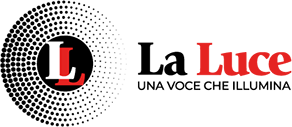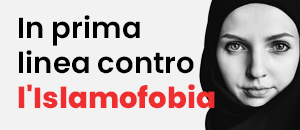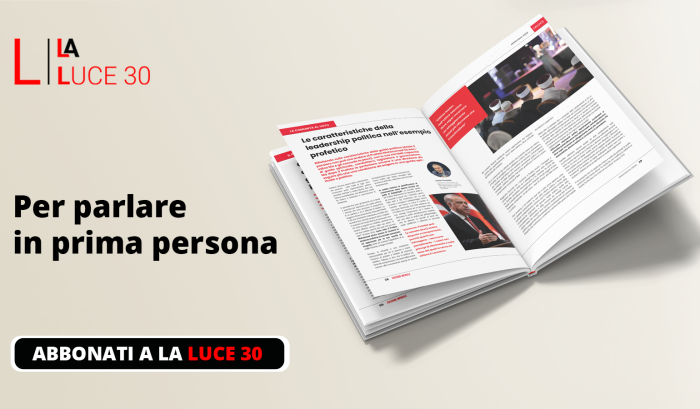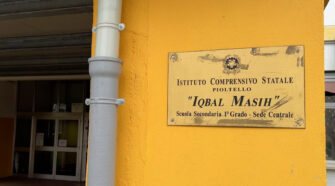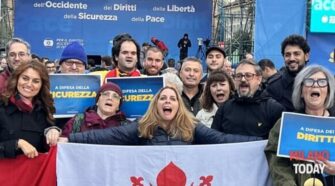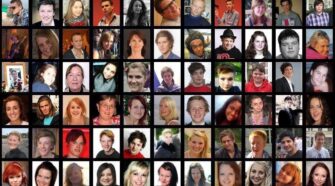The former Italian Interior Minister Matteo Salvini and Giorgia Meloni, the leader of the right-wing party Fratelli d’Italia, accused me on social media of extremism and accused our newspaper, laluce.news, of threatening journalists.
The controversy started when Libero and Il Giornale, two right-wing islamophobic newspapers, used the term “fatwa” to label our legitimate remarks on the inconsistency and falsity of their accusations—according to these outlets, Turkey and president Erdogan are behind the recent deadly attacks in France.
The two politicians have a reputation for propagating fake news; I was not surprised when they attacked me on Facebook.
Relying on an article from Il Giornale, Salvini deliberately misled his followers by calling “fatwa” what is a very normal criticism. The term “fatwa” is now used more and more inappropriately in Italy as a synonym for death sentence.

He is serious when he says: “Well! If these are the “moderate Muslims” in Italy… My solidarity to the threatened journalists! Stop Islamic extremism.”
In a week in which attacks are raging on the front pages of uncountable newspapers, such a public attack is a subtle allegation of terrorism and a covert incitement to lynching.
But how did this story start?
In the context of the already tense international relations between France and Turkey, due to their clashes in the eastern Mediterranean, the controversy arose following the republication of the Charlie Hedbo caricatures that blatantly offended Prophet Muhammad (pbuh).
The situation got quickly out of control: Macron declared that, “Islam is a religion in crisis”, and defended Charlie Hebdo’s choice of publishing the caricatures as representative of the founding values of the French Republic.
Reciprocal attacks are not uncommon between Macron and President Erdogan. In addition to the caricatures controversy, Macron is carrying a “battle against Islamic separatism,” which is nothing more than a repression of everything connected with the social and political organization of French Muslims.
Within a few days, three deadly attacks occurred in France: in Nice, in Avignon, and in Lyon. All of them have been attributed to “Islamic” terrorism. However, if in Nice the motive is yet to be clarified, prosecutors have already denied the religious motive behind the attacks in Avignon and Lyon, and are investigating other leads—violence in France may have many different origins.

What about the Italian press?
As Giuseppe Mancini explained in the columns of laluce.news, some of the most Italian Islamophobic journalists are no longer satisfied with defaming Muslims; they have found in the “Islamic plus Erdogan” combo a new source of ravings.
These are some of the accusations journalists like Feltri, Fiamma Nirenstein, and Giubilei made:
Erdogan is “the best point of reference in the terrorist world”;
“Erdogan […] is like Osama bin Laden, […] he orders to massacre, and his subjects obey with cruelty;”
“It’s impossible not to think of a link between the attack [in Nice] and the Charlie Hebdo cover released yesterday”;
“Turkey is our main enemy today. [Erdogan] wants to conquer Europe and impose his vision of Islam ;”
“Today the leader [of Turkey] seems to be encouraging a new religious war in defense of Islam.”
In a La Luce article, Mancini asked to make them accountable for their words and denounced the total inconsistency of their arguments. Instead of presenting their evidence, they disorderly replied, as if they were screaming: Fatwa! They accused us of being dangerous religious extremists. For instance, Giubilei said: “A serious accusation considering the site from where it comes. They made a list of names and surnames of who is stained of “islamophobia”, according to the editorial staff of La Luce.”
And again: “Let’s not let our guard down, certain signs are alarming.” “The point is precisely this: to defend our freedom of speech, expression and criticism enshrined in the Constitution, which is at the core of the Italian democracy.”
This is an alarming issue. They evoke freedom of speech, while our freedom of criticism and press immediately is labeled as a threat. But why?
It’s simple; Muslims have no right to participate in the public debate and the islamophobic prejudice manifests itself clear here.
This is what emerges from the unconscious of these authors: I can exercise my right of criticism, the Muslim cannot. In doing so, he threatens me, he gives me the “fatwa.” In short, we are the new barbarians.
Giuseppe Mancini, an expert in Turkish affairs, supposedly made a fatwa from the pages of La Luce. How is it possible? Not only is he not a mufti, but he is not even a Muslim.
Our newspaper’s fault is having highlighted the total lack of arguments and sources in support of the serious attacks against Turkey. We understood that this view of ethics is not obvious for some journalists.
For instance, Fausto Bioslavo wrote in Il Giornale: “Feltri dared to compare Erdogan to Osama bin Laden, asking that “he be harnessed to stop killing people in Europe, especially in France in recent days, without any evidence to bring to court, as the Piccardo’s newspaper claims. But this is only a comment, right or wrong, in a country where there is freedom of the press and freedom of expression.”
So, we don’t know whether to laugh or cry. We are forced to explain to the colleagues of Il Giornale that accusing a person of “killing people in Europe” cannot be considered as a simple opinion. According to the criminal law, it could be a crime of defamation, against which the concerned person can file a complaint.

